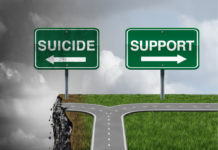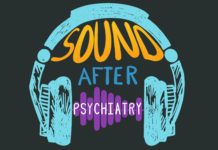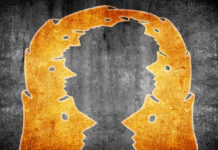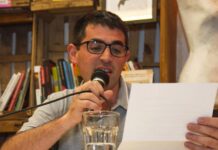Understanding Psychological Disorders: My Personal and Professional Journey
A conflict in my personal life made it possible for me to imagine the power of emotional trauma to trigger a mental health disorder—and gave me new insights about what can help heal it.
Hindsight is 20/20
During my 2003 episode I received a series of ten shocks and at first they seemed to “magically” cure me. However, it only took a month for me to go back to feeling depressed and suicidal — again.
Suicide Prevention and Service Failure in the U.K.
It's really hard to talk about suicide. We are constantly constrained by the notion that our mental health is our individual responsibility to manage, told to “live our best lives” by a never-ending campaign of exploitative wellness fads. A more collective conversation is needed.
Peer Behind the Mask of My Smile
Inside the hospital, I was a social butterfly and knew practically everyone on my wing, but at home, I was a nobody and a loner. If only I had the energy to fake it one hundred percent of the time, then nobody would suspect a thing.
Engaging Voices, Part 1: Validating The Arrival of My Wife’s First ‘Alters’
Sam Ruck shares his third excerpt from his book Healing Companions, which describes his life with, and love for, his wife and her “alters.”
Southern Vapors: A Comeback Story Not Born of Chemistry
Imagine my excitement, the hope that relief from the sucking tar of misery that dogged too many of my days was within my reach. From that moment and for thirty years to follow, I was the willing guinea pig for any number of drugs. Nothing helped for long.
Not Just Another Stain on the Wall
During my 96-hour hold in the psych unit—despite that I was rational and a danger to no one—I was made to feel ashamed and somehow unclean. I went home feeling more depressed than ever.
The Mad Priestess: A Call to Healing
A mad priestess kicks shame and stigma in the teeth, knowing that we can do better. We could be leading the charge for healing—please don’t call it “mental illness” anymore—and take our place as the wounded healers.
Treatment Providers Have the Power to Make or Break Recovery
We need treatment providers that listen to their patients and treat them like human beings. Their job is to support our recovery, not stymie it.
I Almost Got Hit by a Lightning Bolt
I am so thankful that my brain healed from the damage caused by psychiatric medications. Most importantly, finding my purpose in life and living an authentic life helped to ground me and prevent further psychosis. Psychosis is the psyche’s cry for transformation and healing. When one listens to the call, one is brought from darkness to light.
Sound After Psychiatry
In the wake of psychiatry, there was a fracture, a gulf that opened between me and the authentic sound of my voice when it is connected and resonates with my truth.
Fatherland Dreamland Motherland Hinterland
I grew up in Rhodesia, a British colony in southern Africa. Until the age of 16, I lived on the grounds of Ingutsheni Mental Hospital where my father worked. As a psychiatrist, he had enormous power.
Giving Caregivers a Platform: Sam, Husband of Ka’ryn Marie
For many caregivers who assist their loved ones, the journey involves navigating the medical system and its many challenges. This time, the journey takes...
Race and Abuse in Inpatient Settings: What Happens Behind Locked Doors
The problem of staff brutality towards patients on the psych wards disproportionately affects people of color and continues to happen every day behind locked doors.
Peaceful Reflections on the Past from ‘One Who Got Away’
The pain has gone now, and I am grateful for who it has made me — a happier person than before. Perhaps broken open a bit, but in a good way.
Not Stigma, Privacy: Why I Write Under a Pseudonym
If I disclose my situation, then professionally, the attributional association of “the therapist with schizophrenia“ will necessarily and inevitably follow. But this is not who I am. Rather, I am a therapist with a private medical issue and I prefer to maintain its confidentiality—no further justification needed.
Moving On
Although I saw a number of counselors and therapists for my dependency issues, they were unable to help me. Therapists saw my unhappy childhood experiences as part of me, part of who I was, but I did not see it that way. I imagined the experiences circling around outside of ‘the real me’ like moons around a planet, standing between me and the outside world.
Necessary Powers: How I Became Fire
When a person is in hell, surrounded by enemies, without a protector or strong force on their side of any kind, that person needs to become their own powerful spokesperson.
Overcoming Social Barriers as a Writer with a Disability
Finally, I realized that my schizophrenia was not a disorder, but a very complex problem that I could solve by myself.
Writing Is My Best Medicine
For me, writing is a powerful tool for wellness and healing, whether that involves an escape into science fiction or simply putting my dreams, emotions, memories, and observations on paper.
Dear Son: A Mother’s Experience of Psychiatry, Racism and Human Rights
I wanted to spare you, my son, from suffering like I did. I wanted to give you every opportunity I could. You have grown into a good man, a caring and successful man, yet you still have to fear for your life in this country. You still feel pain when you see what is happening.
My Involuntary Metamorphosis
After day treatment, I went once a week to a “continuing care” group. What was “continued” was the lesson that you had a fault that was shameful, volatile and dangerous.
A Psycho-Spiritual Journey
The Wellness approach, despite years of deliberate suppression, has survived and proven itself to be highly effective.
How the Troubled Teen Industry Turns Pain Into Profit
These programs, though marketed as "therapeutic," are nothing more than profit-driven enterprises that exploit families at their most desperate.
The Light in the Dark
Darkness began to consume my life, both literally and metaphorically. My surroundings and even my own thoughts would become distorted into something terrifying. As the nights droned on, shadows in my dorm room would contort themselves into threatening figures. The whispers continued to grow, overcoming the thoughts in my head.

































